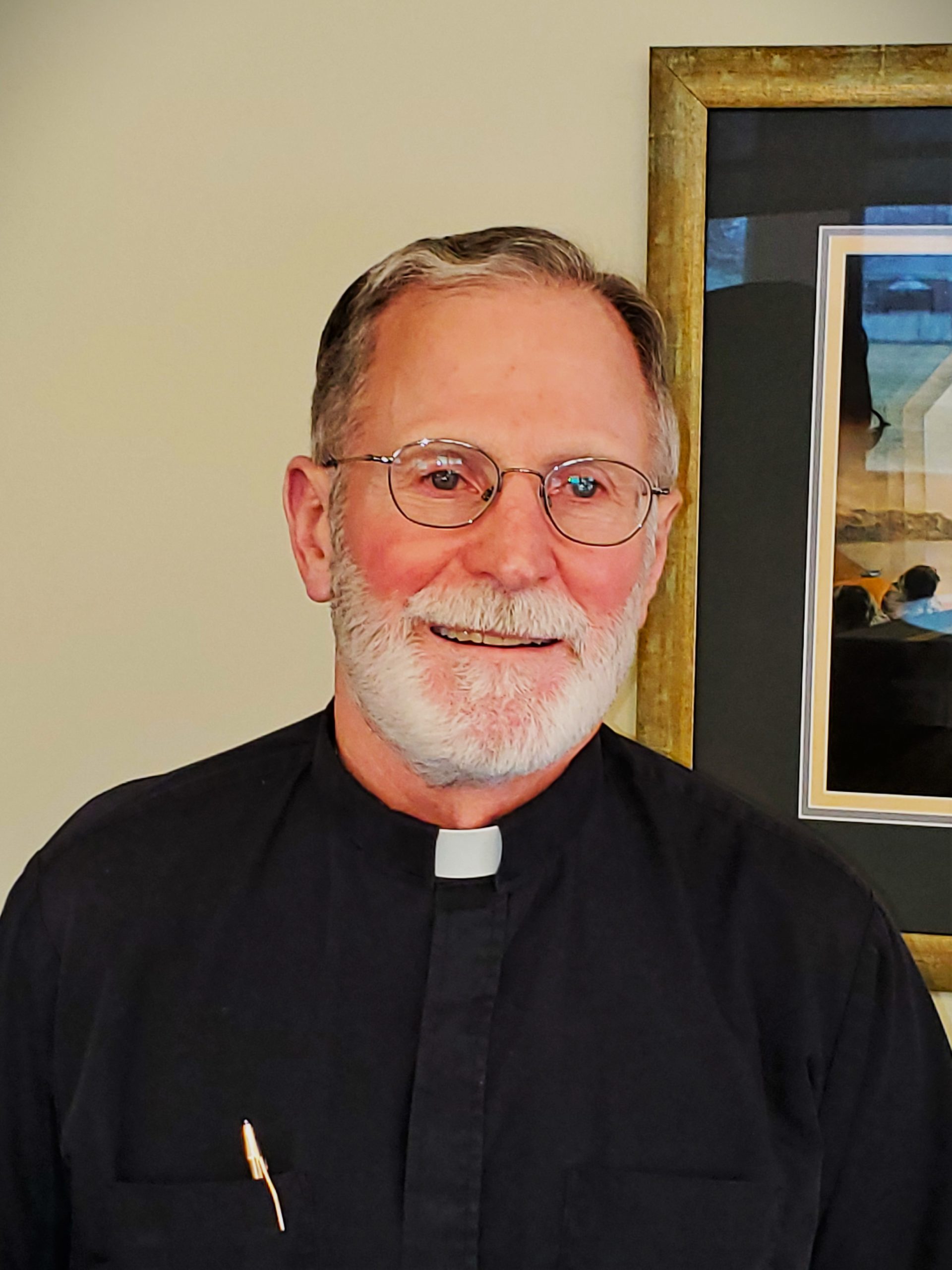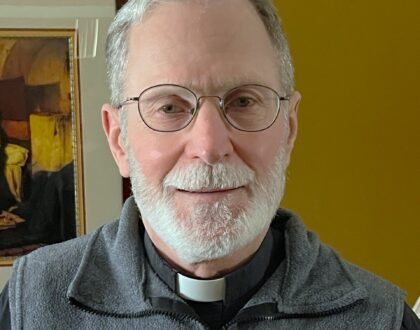Reflection, Sunday April 16, 2023

From The Pastor
In the year 2001, Blessed Pope John Paul II initiated the celebration of Mercy Sunday for the universal Church. The second Sunday of Easter will henceforth be known as Mercy Sunday as a way of honoring the eternal divine love of Jesus through his crucifixion, death, and Resurrection. Mercy Sunday also teaches in wide and various ways the mystery of divine love.
The day acclaims the Lordship of Jesus and the eternal mercy realized through his redemptive death and Resurrection. One immediate connection is what we just celebrated at the Easter Vigil. After the lighting of the Easter fire, the Paschal Candle is lit. Prior to the lighting, the priest inscribes the appropriate year on the candle (2023) and then scribes the Cross upon it. This action is followed by the marking of the Cross as the priest prays, ‘Christ yesterday and today, the beginning and the end, the Alpha and the Omega. All time belongs to him, and all ages. To him be glory and power through every age and forever. Amen.
The connection is that Christ existed before creation, served as the redeemer of all that had been made, and will reign for all ages to come during and after the created world passes away. Christ is the sovereign authority over all that is, including you and me. Through the sovereignty of Christ, the Divine Mercy is made known.
The gospel today is a prime example of both the sovereignty and the mercy of Jesus. As one who has triumphed over death and the temporal and spacial realities of created matter, Jesus can appear through locked doors. He is seen and experienced by those who knew and loved him most. He is transcendent and eternal yet remains fully human.
Understandably, the disciples are hidden behind locked doors in fear and uncertainty. Their concerns were many. They feared the Roman authorities lest what happened to Jesus might happen to them. They are also carrying the trauma of the Lord’s death and the mourning of their loss. During all this, Jesus appears.
In the presence of Jesus, the disciples must feel the stupor of confusion. Realizing that Jesus is real, one could imagine they began to feel guilt or shame for having betrayed and abandoned the Lord. With his words, Jesus reveals the divine mercy. “Peace be with you.” Jesus is conveying no animosity or judgment on those gathered. He melts their fears and calms their souls. He is alive and they are one. No mention is made of past failures, betrayals, or the failure to understand the meaning of the Lord’s death. This is Divine Mercy: unlimited, freely given, unconditional forgiveness to the undeserving.
The gift of Divine Mercy is not dependent on human performance. In the ego of our human nature, we are inclined to seek approval and affirmation through our accomplishments or good performance. This is what would have created anxiety in the disciples. Confused, yet overjoyed that Jesus is alive, but now what is he going to think of us? What will he say about us? This is a fear-based response. The Divine Mercy comes from eternal love. It holds no fear.
Human performance and Divine love are different realities. The mercy known in Divine love is sovereign, eternal and of a completely different nature than the temporal actions of human performance. Christ is the Alpha and the Omega; the beginning and the end, which has no beginning nor end. God’s love precedes human performance, be it good or bad.
‘Peace be with you’ expresses the mercy of the Divine nature of Jesus. In the setting of the upper room, it serves as an expression of forgiveness and acceptance. All that was in the past remains in the past. What is important now, as the essential truth of all believers, is that Jesus is alive and present to us as Redeemer and Lord. In the moment, the disciples experience the relief and joy of unity with Jesus. In time, they will realize the depth of the mercy and forgiveness they have received.
The wound of sin and the realities of our human failures are the root of fear. Human experience too often teaches us this. We are hurt, disappointed, or harmed in some way by the behavior of others. We learn to fear relationships and connections with others. We pull back. In a performance-based world, we seek approval and affirmation by being good, accomplished, competent, or the best at what we do. We want others to notice and to make us feel good by their praise or kudos.
Incorrectly, we project the same desire onto God. When we fail, or sin, or do what we think is disappointing to God, we pull back, fearful of God’s reaction to us. In the time of our best performance or in our greatest failures the mercy of God does not change. Divine love is sovereign. It is an essence prior to and subsequent to human behavior. Divine love is mercy. It is unchanging, eternal. Our poor behavior makes us sad and uncertain, not the Lord.
Our virtue and goodness reflect the goodness of God in us. In virtue we are images of Christ for others. In virtue, we experience the joy of Christ. In our inevitable failures we become discouraged and often fearful. We feel unhappiness. In faith, we seek healing and forgiveness. If we remain in our fear, we resist and pull back, hiding behind locked doors. Divine Mercy heals all fear. Our surety and trust in the Risen One is our joy and our peace. May the gift of redemption swell your hearts with Easter joy and trust in the Divine Mercy. God is overjoyed to redeem you. The challenge is to accept and trust this Divine gift.
Father John Esper
Recent Sermons

Homily, March 30, 2025
March 27, 2025

Homily, March 23, 2025
March 20, 2025

Homily, March 16, 2025
March 11, 2025
